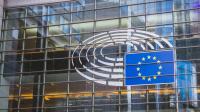Getting to grips with the new rules on state aid from third countries
Companies receiving public aid in the form of grants, tax benefits or other types of financial contributions from third countries outside the EU will be subject to new supervision as of the summer of 2023. A new EU Regulation allows the European Commission to take action against companies that have received financial aid from third countries during the last five years. Certain companies will in future also have to notify both participation in public procurement procedures and contemplated transactions. We will below give you an overview of the rules and explain how your company should prepare for them already today.

Note that, until 6 March 2023, the Commission is conducting a public consultation on rules implementing the Foreign Subsidies Regulation, which will affect e.g. the kind of information that companies are required to disclose to the European Commission and therefore should register internally.
Why introduce new supervision of State aid from third countries?
Already today, various rules are in place to ensure that competition in the internal market is not distorted by public subsidies. This applies in particular to EU State aid rules, which limit the possibility for EU Member States to provide aid to companies, and EU trade policy instruments, which allow action to be taken against imports of subsidised goods into the internal market.
However, based on the experience of recent years, the European Commission has considered that the rules in place so far do not provide sufficient EU control over State aid from third countries outside the EU to companies operating in the internal market. This is the reason why the EU has now adopted the new Foreign Subsidies Regulation, which gives the European Commission a new set of control tools to ensure that competition in the internal market is not distorted by public subsidies from third countries.
What constitutes State aid from third countries?
Foreign subsidies must - as in the EU State aid rules - be understood broadly (Article 3 of the Regulation). They include:
- any financial contribution, including (i) the transfer of funds (e.g. capital injections, grants, fiscal incentives, etc.), (ii) the forgoing of revenue (e.g. tax exemptions, granting of exclusive rights, etc.) or (iii) the provision or purchase of goods or services;
- which has been provided by third countries, including (i) public authorities at all levels and (ii) all other public or private entities whose actions can be attributed to the third country, taking into account the specific circumstances.
What do the three new control mechanisms entail?
Specifically, the new Regulation gives the Commission three new powers of control:
- A general right of review (Articles 9-18 of the Regulation): The European Commission will be empowered to examine on its own initiative any situation giving rise to a suspicion of distortion of competition in the internal market due to aid from third countries. Among other things, the Commission will be given a range of investigative powers to gather the necessary information, including to request information from companies, conduct inspections and launch market investigations, for example within specific sectors or types of subsidies, and the possibility to request ad hoc notifications in connection with small mergers and public procurement procedures.
-
Concentrations (Articles 19-26 of the Regulation): Companies will be obliged to notify to the European Commission concentrations involving a financial contribution by a third country, if:
- (i) the acquired company, one of the merging parties or the joint venture generates an EU turnover of at least EUR 500 million; an
- (ii) the aggregate foreign financial contribution involved exceeds EUR 50 million in the three preceding years.
-
Participation in public procurement procedures (Articles 27-33 of the Regulation): Companies will be obliged to notify to the European Commission, via the contracting entity, participation in public procurement procedures, if:
- (i) the estimated contract value is at least EUR 250 million; and
- (ii) the foreign financial contribution involved is at least EUR 4 million per third country in the three preceding years. The obligation does not extend to procurement procedures under the Defence and Security Directive.
If a tenderer is subject to the notification obligation but does not submit a notification in accordance with the Regulation, the contracting entity must reject the tender. If the notification has been made correctly, the procurement procedure can continue, but the contract cannot be awarded if the tenderer notifies having received aid before the European Commission has completed its work.
If the European Commission concludes that the foreign subsidies distort competition, it must carry out a so-called "balancing test", balancing the negative effects of the aid against any positive effects (Article 6 of the Regulation)
On the basis of the balancing test, the European Commission will be able to decide on any necessary structural or non-structural redressive measures, as is also known from e.g. the merger control rules, and claim repayment of foreign subsidies (Article 7 of the Regulation). In addition, the European Commission can prohibit e.g. the implementation of mergers (Article 25 of the Regulation) or the award of contracts in procurement procedures (Article 31 of the Regulation).
When do the new rules enter into effect, and how should companies prepare?
The possibility for the European Commission to initiate investigations into foreign subsidies will enter into effect on 12 July 2023, while the notification obligation for mergers and participation in procurement procedures will enter into effect three months later, as of 12 October 2023.
The Regulation applies to all foreign subsidies granted within five years of 12 July 2023 if they distort competition after that date. Companies or groups that receive or have received foreign subsidies during those periods should therefore pay attention to the rules and, if necessary, prepare internal statements of the subsidies received.
The Regulation imposes new and potentially burdensome administrative obligations. We therefore recommend that companies and groups that may be affected by the rules:
- identify and quantify financial contributions from third countries;
- determine whether financial contributions constitute foreign subsidies within the meaning of the Regulation;
- assess whether the foreign subsidies can be considered to be distortive, taking into account, inter alia, the purpose of the contribution, the relevant market, the nature and amount of the contribution, and the market position of the company;
- assess possible positive effects of the subsidies, including for example increased environmental protection, promotion of research and development, or improved social standards;
- assess possible notification obligation in connection with the participation in public procurement procedures or corporate transactions in parallel with, inter alia, the general merger control and investment screening rules.
Note that the European Commission has just published a draft implementing regulation for public consultation, open until 6 March 2023, which sets out detailed procedural rules for European Commission investigations. The implementing regulation contains, inter alia, draft notification forms for use in connection with procurements and mergers, which provide a preliminary overview of the information that relevant companies should be able to provide in the future. It is worth noting that the European Commission allows for information to be omitted under certain circumstances if it is not available to the companies or is not necessary for the European Commission's investigation.
You are always welcome to contact our competition and procurement team members, who will be happy to assist you if you have any questions about the new rules, the consultation process, and the practical implications for your company.
Read the Regulation on foreign subsidies
Visit the consultation portal for the Commission's implementing regulation
Contact


